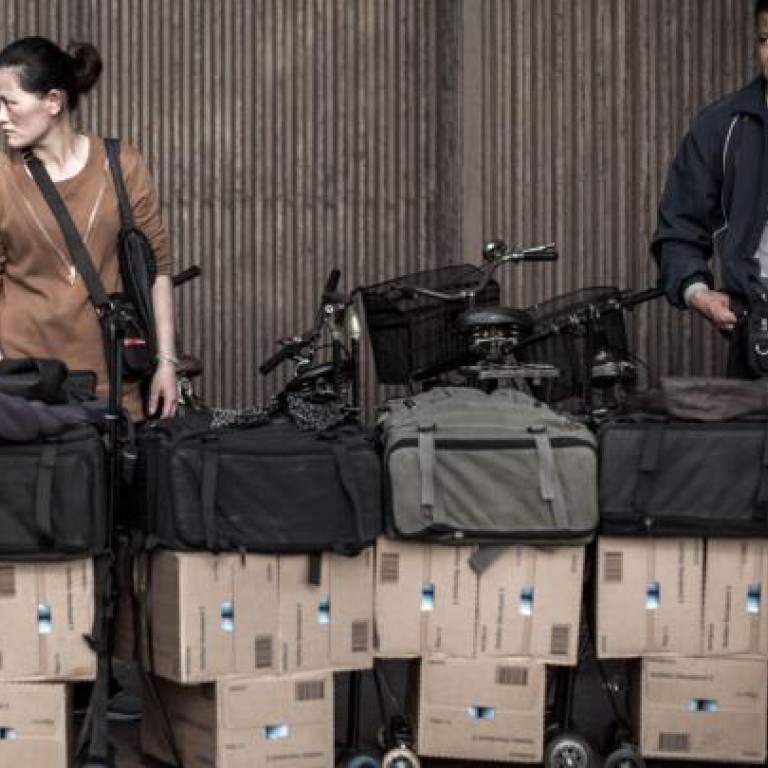
Political wisdom, not infant formula, in short supply in Hong Kong
Albert Cheng says the government has failed to understand the problem and only tried to capitalise on public discontent to raise its own popularity
We often see people trying to divert attention from their inadequacies by stirring up trouble and using conflicts and setbacks to their advantage. The baby formula shortage in Hong Kong is a classic example of this.
First, the shortage was a man-made problem created by suppliers in order to push up prices. Then the administration eagerly jumped on the bandwagon and took advantage of the situation.
Meanwhile, some retailers and mothers' groups further encouraged the situation by going along with it, acting like accomplices, while local babies and mothers suffered the consequences.
Ironically, the administration thought it could take advantage of the situation to boost its popularity, without realising it was in fact another wave of conflict between Hong Kong and the mainland.
The entire baby formula saga was meticulously scripted and acted out by a handful of suppliers. In fact, people in the industry routinely anticipate a certain supply shortage at this time of year, allowing suppliers to jack up prices.
Simply put, the shortage scare was a by-product of a lopsided market that was created by a handful of big suppliers who control the flow and supply of products in order to inflate prices.
There are about 50,000 babies born in Hong Kong each year, excluding those born to mainland parents.
If we say that it is reasonable to wean a child off formula by the age of three, we are talking about a total infant population of around 150,000 at any one time.
If the newly set-up inquiry hotline received only 2,500 calls in four days from mothers seeking help to buy baby formula, it's obvious the problem isn't all that serious.
Furthermore, the suppliers earned more on each tin because those were direct sales, rather than having to go through stores.
The hotline also seems to have worked to the advantage of the big-brand suppliers. The less popular brands have inadvertently been sidelined.
Meanwhile, the tightening up of luggage limits on the East Rail Line that runs to the border, lowering the weight limit from 32kg to 23kg per traveller - an idea championed by Chief Secretary Carrie Lam Cheng Yuet-ngor - has caused a lot of inconvenience to commuters, especially those heading to the airport. Many people have since avoided taking the MTR along this particular route.
It goes to show that Lam's so-called combative style is nothing but a bullying tactic.
Communist Party leader Xi Jinping has repeatedly vowed to fight corruption on the mainland and stressed that anti-corruption efforts must target "tigers" and "flies" - meaning both powerful leaders and low-ranking bureaucrats. Obviously Lam hasn't been cracking down on the so-called tigers.
As I have said previously, it's not at all difficult to resolve the problem of the so-called baby formula shortage. The government could subsidise the supply to local babies or even distribute it free of charge.
For example, it could supply each local infant with five to six cans of baby formula each month for three years until they are weaned off it. The distribution could be handled by maternal and child health centres across the city.
Based on the annual birth rate of about 50,000, excluding those born to mainland parents, it would only cost the government an extra HK$1 billion or so per year.
Instead of relying on the useless hotline, which is no more than a direct sales line, it would be more effective to mobilise the district councils across the city to help with supply and distribution.
Another option is to seek help from non-governmental organisations. There are so many viable options, all of which seem far more effective than what the government has done so far.
But the controversy goes deeper. It represents rising tension between Hong Kong and the mainland as well as a growing rift between Hongkongers and mainlanders.
It's increasingly obvious that although Hong Kong is supposed to enjoy a high degree of autonomy, the central government still continues to impose the so-called "heavenly principles and doctrines" on the Hong Kong government. This kind of political mindset emphasises the centralisation of authority and putting the party above the law.
With Hong Kong people becoming increasingly aware of their rights and freedoms, a collision course seems unavoidable.
The baby formula saga was just a sequel to other controversies such as the Dolce & Gabbana incident, representing the rising resentment at mainland encroachment on Hong Kong.
With this rising tension, it is vital that Chief Executive Leung Chun-ying safeguard the "two systems" under "one country", not the other way around.

